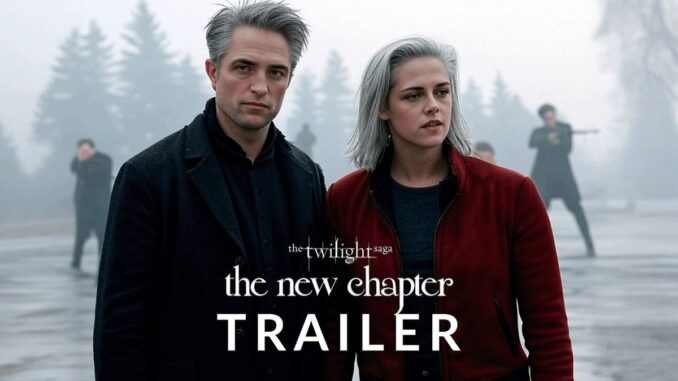
The year is 2008. The world is introduced to a love story of existential angst, glittering vampires, and a perpetually conflicted human girl. Twilight wasn’t just a film; it was a phenomenon, a cultural earthquake that spawned sequels, merchandise, and an unprecedented level of fan devotion. And at its brooding heart stood Robert Pattinson, the intensely handsome, deeply uncomfortable Edward Cullen. More than a decade later, the films have ended, the books have been thoroughly dissected, and Robert Pattinson has gracefully, almost defiantly, shed his sparkly skin to become one of Hollywood’s most respected actors. Yet, the question persists, a whisper in the pop culture winds: why are people still so mad about Twilight? And what role does Pattinson’s journey play in this enduring animosity?
The initial wave of “madness” was understandable, even predictable. Twilight presented a distinctly unique, some would say problematic, spin on vampire lore. Edward Cullen, a creature of the night, didn’t burn in the sun; he sparkled. This single detail, an almost sacrilegious departure from traditional horror tropes, became a lightning rod for derision. Beyond the glitter, critics and many viewers found fault with the clumsy dialogue, the questionable power dynamics in Bella and Edward’s relationship, and a pervasive sense of melodrama that often tipped into unintentional comedy. For those who cherished vampires as figures of terror and dark romance, Twilight felt like a betrayal, a sanitization of a genre for a younger, largely female, audience. The “madness,” then, was born from a cocktail of disappointment, genre purism, and a healthy dose of schadenfreude at its perceived artistic failings.
However, a significant component of this lingering frustration, and arguably its amplification, came from Robert Pattinson himself. Even during the height of the Twilight craze, Pattinson’s barely concealed disdain for the role, the franchise, and the surrounding hysteria was palpable. His interviews often featured a wry, self-deprecating humor, sometimes bordering on outright mockery of Edward’s possessiveness or the absurdity of the plot. He openly admitted to finding the books “strange” and struggled to reconcile with the character. This made him a reluctant icon, a vessel for a phenomenon he didn’t quite understand or endorse. His discomfort served as an unofficial validation for those who hated the series, giving them a knowing wink and a tacit “even he agrees it’s ridiculous.” If the lead actor couldn’t take it seriously, why should anyone else?
The passage of time, though, has introduced a new layer to this persistent “madness,” intrinsically linked to Pattinson’s post-Twilight career. Once synonymous with teenage heartthrob, RPatz embarked on a meticulously curated journey into indie cinema, shedding the blockbuster persona like an old skin. He delved into gritty, challenging roles in films like Good Time, The Lighthouse, and Cosmopolis, proving his range, intensity, and commitment to complex characters. He became a darling of arthouse critics, a chameleon capable of inhabiting deeply flawed, often unsettling, protagonists. His career trajectory culminated in the ultimate cinematic redemption: donning the cowl as The Batman.
This transformation has, paradoxically, kept the fires of Twilight “madness” burning, albeit with a different fuel. Pattinson’s unequivocal success and critical acclaim in the post-Twilight era serve as a stark contrast to the perceived quality of the films that launched him. His talent, now undeniable, makes the “badness” of Twilight feel even more pronounced. It’s as if his current brilliance highlights what he had to endure, making the earlier critique of Twilight seem prescient and, in hindsight, even more justified. “See?” the lingering sentiment seems to say. “We knew he was better than that. We knew Twilight wasn’t worthy of him.” The “madness” becomes less about genuine anger and more about a shared cultural inside joke, a testament to how far he’s come, often expressed through memes and nostalgic critiques that juxtapose his intense indie roles with his sparkly vampire past.
Ultimately, the enduring “madness” about Twilight is less about genuine rage and more about its indelible mark on pop culture, continuously re-contextualized by the evolution of its stars. Robert Pattinson, the reluctant vampire, became the unwitting catalyst for this prolonged conversation. His journey from glittering heartthrob to gritty auteur has not only redeemed his own artistic credibility but has also solidified Twilight‘s place as a cultural touchstone – a film series that, for better or worse, we still can’t quite get over, precisely because the man who suffered through it emerged on the other side, caped and glorious, reminding us of the glittering absurdity from which he escaped. The “madness,” then, is a tribute, a collective nod to the absurdity of the past and the triumph of talent over initial perception.
